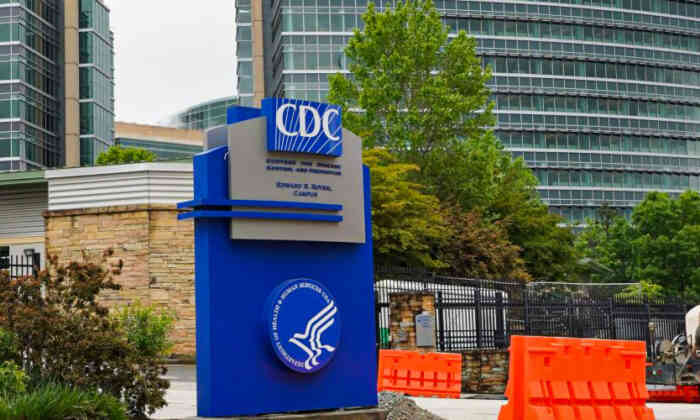Newly obtained emails confirm that the Centers for Disease Control and Prevention (CDC) changed its definition for both “vaccine” and “vaccinated” because people were pointing out that the definitions didn’t seem to apply to the COVID-19 vaccines.
“The definition of vaccine we have posted is problematic and people are using it to claim the COVID-19 vaccine is not a vaccine based on our own definition,” Alycia Downs, a CDC official, wrote in an email to a colleague on Aug. 25, 2021.
The definition is located on the CDC webpage on immunization basics.
“Vaccine” had been defined since at least 2011 by the CDC as a product that triggers immunity, while “vaccination” was described as an injection that prevents a disease, according to archived versions of the page. However, a flood of inquiries on the definitions was triggered by the fact that the COVID-19 vaccines have been increasingly ineffective against infection by the virus that causes COVID-19, the emails show.
“Our question is how is the CDC and the rest of the world allowed to call the shot a vaccination when it doesn’t even meet your own definition,” one person wrote to the CDC.
“Right-wing covid-19 pandemic deniers are using your ‘vaccine’ definition to argue that mRNA vaccines are not vaccines,” another said.
The Pfizer and Moderna COVID-19 vaccines are both built on messenger RNA technology. They’re two of the three COVID-19 vaccines available in the United States.
Downs and colleagues Allison Michelle Fisher, Cynthia Jorgensen, Valerie Morelli, and Andrew (no last name given) worked on changing the definitions for “vaccine” and “vaccination,” according to the emails.
cdc-emails-on-changing-definitionsThe changes were pushed through on Aug. 31, 2021, and Sept. 1, 2021, respectively.
Changing Definitions
“Vaccine” is now defined as “a preparation that is used to stimulate the body’s immune response against diseases.
“Vaccines are usually administered through needle injections, but some can be administered by mouth or sprayed into the nose,” the definition reads.
The previous definition was “a product that stimulates a person’s immune system to produce immunity to a specific disease, protecting the person from that disease. Vaccines are usually administered through needle injections, but can also be administered by mouth or sprayed into the nose.”
“Vaccination” was changed to “the act of introducing a vaccine into the body to produce protection from a specific disease” from “the act of introducing a vaccine into the body to produce immunity to a specific disease.”
Attorney Travis Miller obtained some of the missives in 2021 and published screenshots of them. At the time, the CDC didn’t dispute their authenticity. The Epoch Times has obtained the emails and additional messages concerning the changes and has published all 67 pages of them.
The batch of emails, obtained through a Freedom of Information Act request, also shows that Andrew, a CDC employee on the agency’s Vaccine Task Force, boosted a Washington Post article that downplayed criticism of the change.
“I’ve only seen a couple of inquiries about the change to this page. I think the WaPo article explains the problem well—that people are misinterpreting ‘immunity’ to mean 100% protection,” Andrew wrote.
Downs replied, “Thank you, Andrew! I really appreciate your response.”
A CDC spokesperson told The Epoch Times that the “slight changes in wording” haven’t altered “the overall definition” of “vaccine,” noting that “the previous definition at Immunization Basics | CDC could be interpreted to mean that vaccines were 100 percent effective, which has never been the case for any vaccine, so the current definition is more transparent and also describes the ways in which vaccines can be administered.”
Some other portions of the CDC website still state that COVID-19 vaccines confer immunity. One page, for instance, states that “getting a COVID-19 vaccination is a safer and more dependable way to build immunity to COVID-19 than getting sick with COVID-19.”

